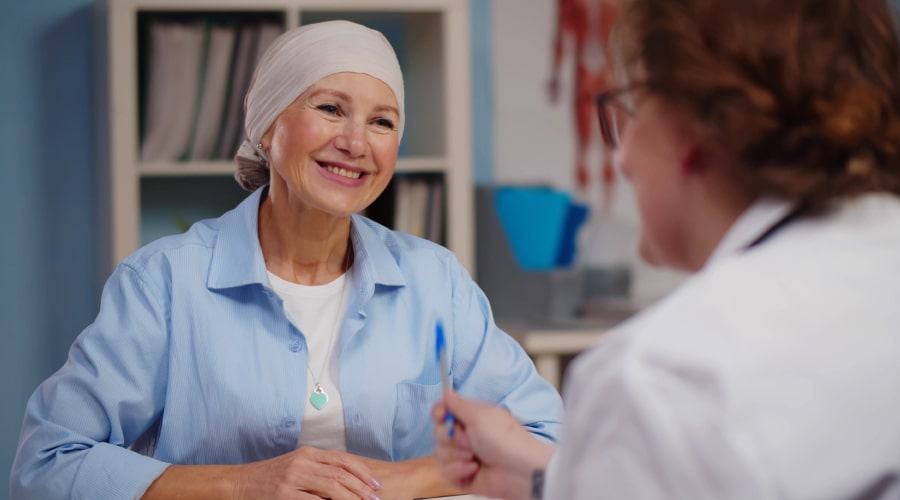
Let’s answer this question right away. Can a cancer patient donate their body to science? In most cases, the answer is yes.
Moreover, a body donation to science is incredibly important.
Cancer is the second leading cause of death in the United States and, along with heart disease, makes up nearly half of all deaths. According to the National Center for Health Statistics at the Centers for Disease Control (CDC), more than 600,000 people die from cancer-related diseases each year, although the number has dropped over the past few years due to improvements in cancer treatment and therapies.
Cancer Breakthroughs
When you make a body donation to science, you provide medical scientists with an important research and testing option. Past donations have led to improvements in:
- Identifying genetic mutations: Helping researchers pinpoint specific genetic mutations linked to various cancers, leading to targeted therapies.
- Developing new treatments: Contributing to the development of innovative treatments, including chemotherapy drugs, immunotherapy techniques, and radiation therapies.
- Understanding cancer progression: Gaining insights into how tumors grow, spread, and respond to treatment.
- Improving early detection: Helping scientists develop more sensitive and accurate screening tests for early cancer detection.
There have been significant breakthroughs in cancer research. For example, the discovery of the BRCA1 and BRCA2 genes provided genetic information important in the prevention and treatment of breast and ovarian cancers. Using donated bodies, researchers were better able to understand the mutations of such cancers throughout disease progression, enabling the development of more effective—and targeted—therapies. Other studies have helped researchers develop immunotherapy strategies that leverage the body’s natural immune system to fight cancer.
Can a Cancer Patient Donate Their Body to Science?
As long as you meet other eligibility requirements, you can make a body donation to science in Florida if you have cancer. You must:
- Be at least 18 years of age
- Not have a communicable disease such as HIV/AIDs or hepatitis
- Provide formal consent
Researchers can study a wide variety of cancers, including:
- Breast cancer
- Prostate cancer
- Lung cancer
- Colon cancer
- Melanoma
- Bladder cancer
- Non-Hodgkin Lymphoma
- Kidney and renal cancer
- Uterine cancer
- Leukemia
- Pancreatic cancer
- Thyroid cancer
- Liver cancer
You need to check with the body donation program you choose to ensure eligibility as each may have different requirements. For example, some programs do not accept bodies that have high or low body mass index (BMI), such as obese individuals. Some may also not accept those of upper age.
United Tissue Network (UTN) accepts about 97% of donations, including those of upper ages and all BMI types. Typically, the only automatic exclusion is for those with communicable diseases to protect the safety of researchers and scientists.
Making a Body Donation to Science in Florida: Information for Cancer Patients
According to the National Cancer Institute, about two million people will be diagnosed with cancer each year, putting their lives at risk. A body donation to science can help develop new treatments, therapies, and surgical techniques to help these patients and future patients.
When you make a body donation to science, it is a selfless act. Many families find comfort in knowing that the passing of a loved one is helping find ways to improve the quality of life for countless others dealing with cancer.
In Florida, United Tissue Network coordinates body donations, placing donated bodies with reputable research and educational facilities. UTN pays for 100% of the costs associated with transportation, placement, and cremation after research has concluded. UTN will also facilitate the return of cremated remains to donor families upon request.
UTN is a nonprofit organization accredited by the American Association of Tissue Banks (AATB), upholding the highest ethical standards. Since 2009, UTN has helped 12,000 families with the donation process.
If you would like to become a body donor or register a loved one, you can do so by filling out a donation form online:
As end of life approaches, you will need to provide a more detailed medical history, but you can streamline the process by registering online and providing basic medical information. Those pledging to donate their body will receive a digital donor card by email within 10 days.
For more information about donating or pledging yourself or a loved one, talk to one of UTN’s Donor Specialists by calling (877) 738-6111 24/7.
